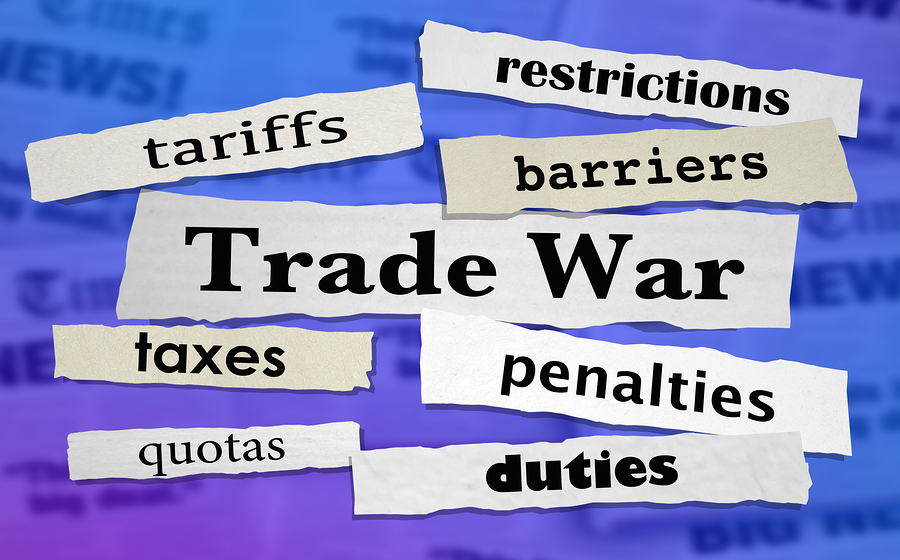As companies report their Q3 results, many food companies are feeling the bite of the Trump Administration’s trade war.
It all started earlier this year, when Trump imposed tariffs on steel and aluminum, raising prices on everything from beer cans to food processing equipment. The first round of tariffs on Chinese products went into effect in the third quarter, and more are set to start in January. The effects of these, and retaliatory tariffs from China, the EU, and others, are starting to show in companies’ profits.
Bloomberg is tracking how the tariffs are affecting large, widely recognized companies around the world. The tariff tracker is updated as more information becomes available. Here are the food producers and processors on the list at the time of this writing.
Consumer products companies
Brown-Forman
In June, Brown-Forman raised prices on Jack Daniels because of tariffs on U.S. whiskey and bourbon. In August, the company lowered its full-year profit forecast.
Coca-Cola
Earlier this year, Coca-Cola raised its prices because of the aluminum tariffs and higher shipping costs. That move, as well as higher sales for Coca-Cola Zero Sugar, helped boost Q3 earnings above analysts’ estimates.
MillerCoors
MillerCoors has been a vocal opponent of the tariffs. In June, CEO Gavin Hattersley said that rising aluminum prices could cost the company as much as $40 in profits this year. In September, the company announced that it would lay off 350 people due to declining sales.
Agricultural products companies
ALFA
ALFA is a Mexican industrial conglomerate that owns refrigerated and frozen foods company Sigma. In July, Sigma switched from buying U.S. pork to sourcing products from Canada, Europe, and South America to avoid the 20% tariff.
Bunge
Despite a brief recovery in October, Bunge stock has had a rough year. The company posted a surprise loss in Q2 after a wrong-way bet on Chicago soybean futures based on the assumption that the trade dispute would be resolved quickly. Q3 results were better, and CEO Soren Schroder said that the company is well positioned to weather global trade conditions in future.
Tyson Foods
Tyson cut its forecast in July after profits sank due to China and Mexico placing retaliatory tariffs on American pork. The stock is trading about 25% below it’s high for the year. Then-CEO Tom Hayes said at the time: “The combination of changing global trade policies here and abroad, and the uncertainty of any resolution, have created a challenging market environment of increased volatility, lower prices, and oversupply of protein.”
UPDATE: In their quarterly earnings update, released Nov. 13, Tyson beat profit expectations, but the company’s revenue fell short.
Wilmar International
Headquartered in Singapore, Wilmar is Asia’s largest agribusiness group. Wilmar said the trade tensions boosted its Q2 profit, a result that was repeated in Q3. While the trade war has been beneficial for the company in the short term, Bloomberg notes that “it warned that a prolonged dispute would negatively impact margins due to lower plant utilization.”
Of course, these aren’t the only companies that have been impacted by the trade war — just the ones Bloomberg is tracking. For another perspective, check out the results of a recent survey on how the tariffs are affecting food processing suppliers.
